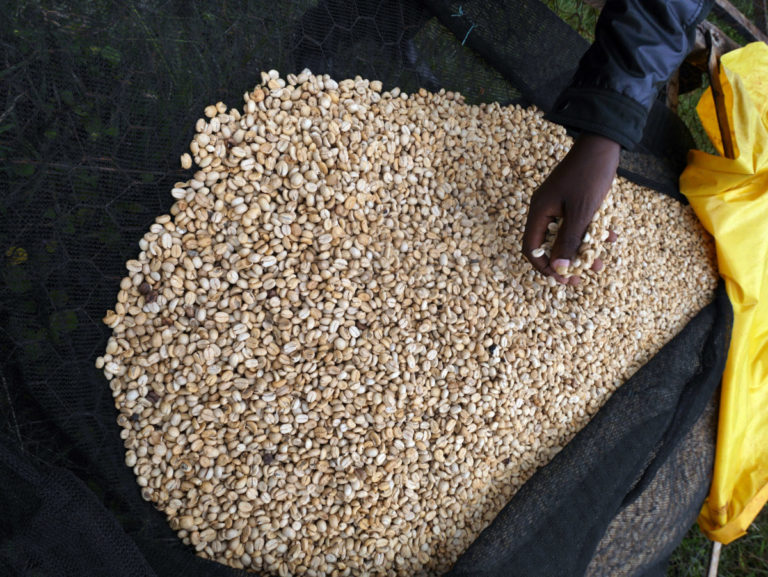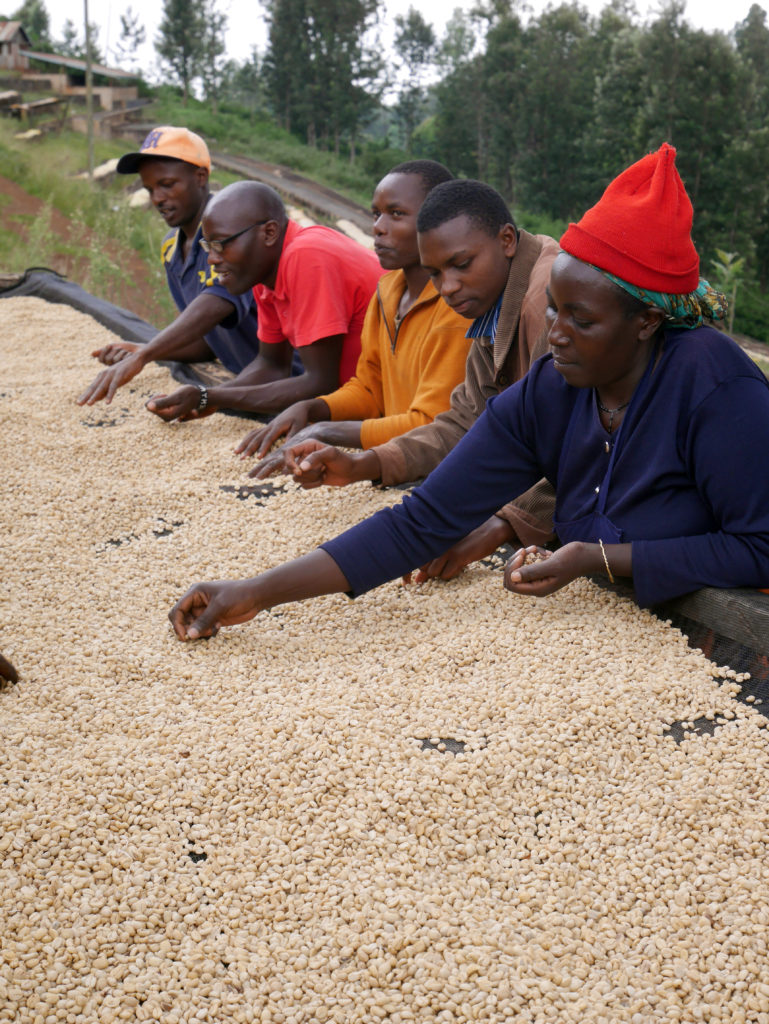New Coffee Release: Kenya Ndundu AB

As some of you may already know Kenya is on the top of my coffee origin list. It seems common to have a transition of ones cup-profile preference as you evolve in your exploration of specialty coffee.
My preference over the last 10 years looked a little like this-
Indonesia; Guatemala; Bolivia/Ethiopia; Colombia/Kenya; Rwanda; Kenya; Ethiopia; Kenya; Rwanda; Kenya.
Yup. Not a typo. Definitely a trend. But, everyone has their own preference.
A look at the specs
Mill: Ndundu Factory; Thiririka Farmers Cooperative Society
Varietal(s): Sl28, SL34 & some Ruiru 11 & Batian
Processing: Fully washed & dried on raised beds
Altitude: 1 600 to 1 900 meters above sea level
Owner: Approx. 800 members deliver to washing station; FCS=Approx. members 2,400 active
Town: Gatundu & Thika
Region: Kiambu County
Country: Kenya
Total size of farm: <1 hectare (total 410 hectares for all members)
Area under coffee: <1 hectare

This lot was produced by numerous smallholder farmers, all of whom are members of the Thiririka Farmers Cooperative Society, delivering to Ndundu Coffee Factory (another name for washing station in Kenya).
Ndundu is a Gikuyu term for ‘agreement or unity’, and is often used as a phrase/command to encourage people to work together. The Gikuyu are a Bantu-speaking people who live in the highland area of south-central Kenya, near Mount Kenya.
The Ndundu Factory is well known for producing exceptionally high quality coffee. Meticulous processing plays a massive role to produce green that is has a flawless starting point for us Roasters. Without it we wouldn’t have much to work with. Processing should be seen as the most important determining factor in the flavour profile of a coffee, and the Ndundu factory has it nailed.
A note about the varieties
In the 1950’s, several extremely successful hybrids from Scott Laboratories were introduced in Kenya and these have largely replaced the original French Bourbon stock which had been brought to Kenya from Ethiopia. The most well-known varieties are SL28 and SL34, both of which are Bourbon varieties and lend Kenya the distinctive big body and winey blackcurrant notes that it’s so well known for. Although- this can vary depending on roast profile, extraction and other attributes from cultivation and processing. Other varieties, such as Batian and Ruiri, have been introduced mainly for disease and pest resistance.
Conclusion
Wine-gum sweetness with notes of raspberry and tangerine. This coffees acidity is fantastic-effervescent and berry like, and seems to be quite versatile across various brew methods.
Enjoy the brews.